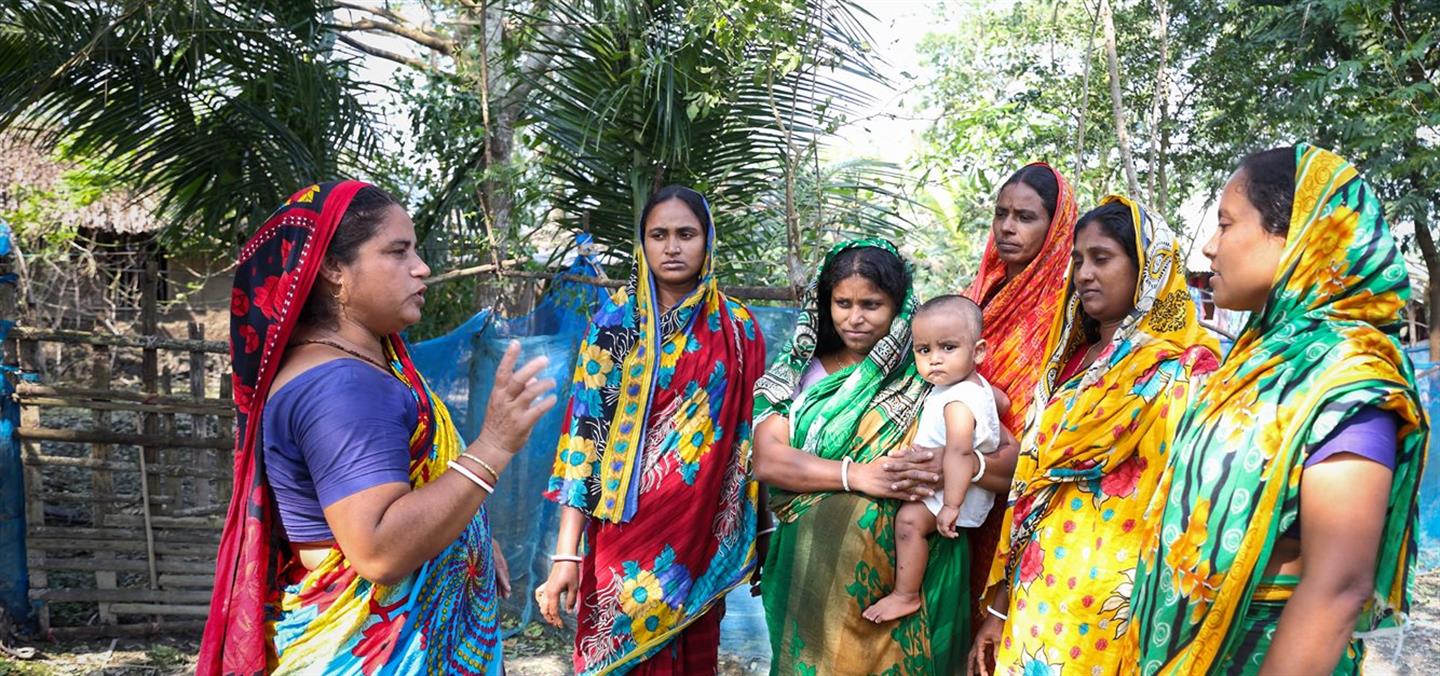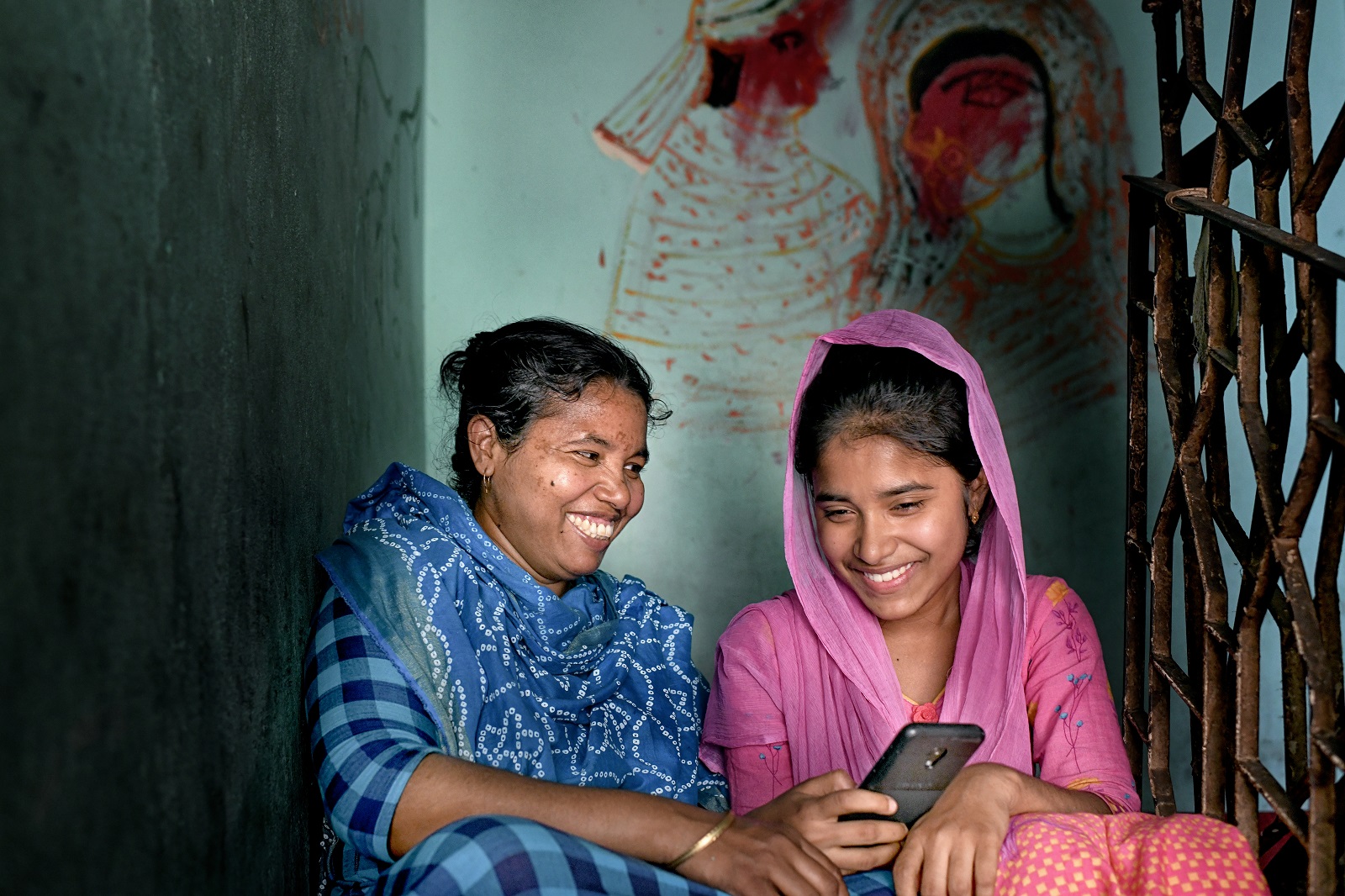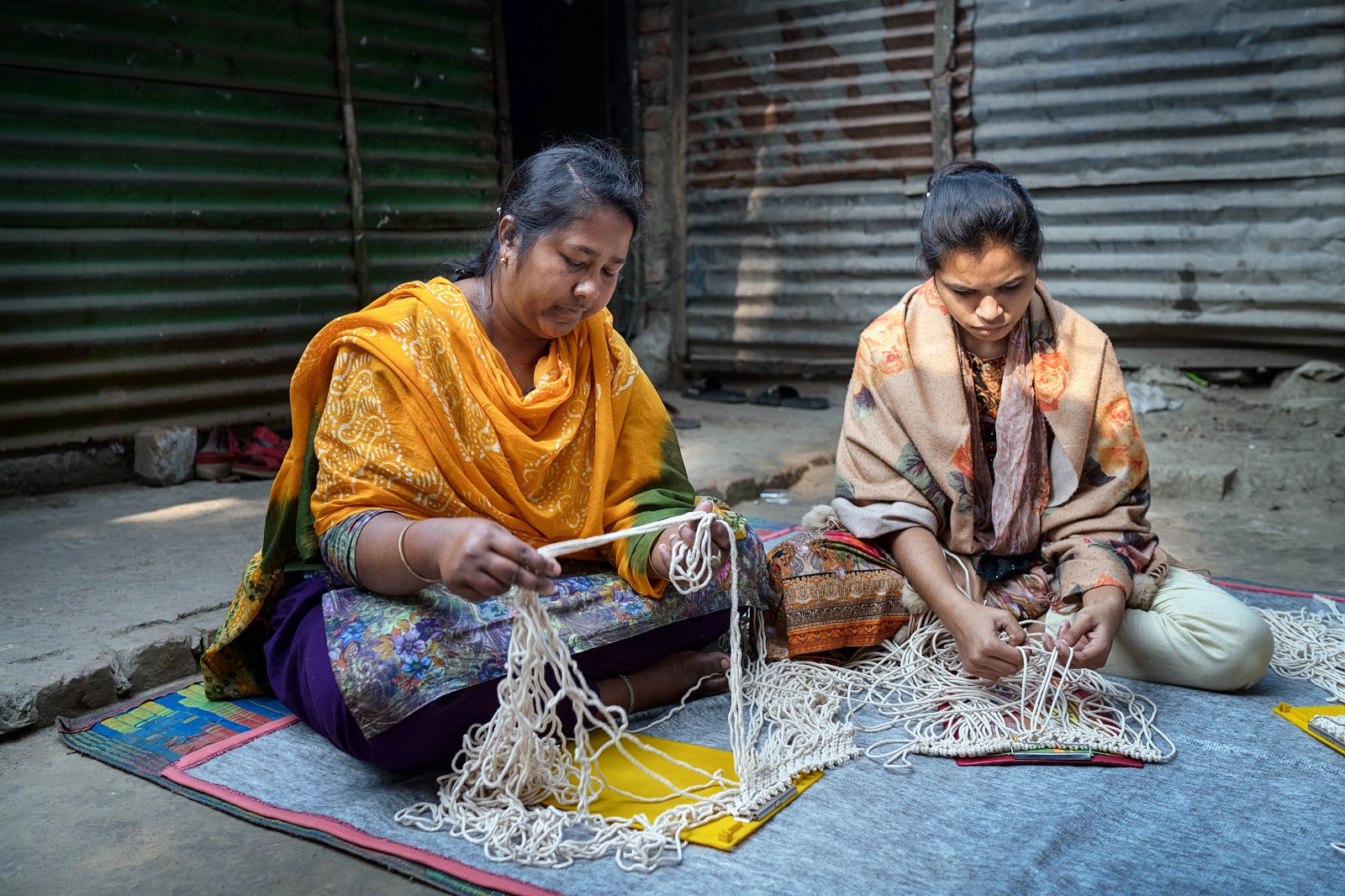
Why climate finance matters
In this blog, we would like to present the new investment strategy of the Oxfam Novib Fund and explain how Oxfam Novib aims to support microfinance institutions (MFIs) to help reduce the negative impacts of climate change-related disasters on women, rural households and small-scale producers.
Since its establishment in 1998, the Oxfam Novib Fund has invested in microfinance institutions (MFIs) in over 40 countries. Through these investments, small and emerging MFIs were enabled to deliver important financial services to people living in vulnerable situations, particularly women, as a means to ultimately alleviate poverty.

In the last two decades, global investments in MFIs have surged and the total global loan portfolio is currently estimated to be about USD 160 billion, reaching 140 million borrowers (source: "Microfinance Barometer 2021"). As a result, the microfinance sector has matured. Oxfam Novib Impact Investments has therefore decided to revisit its investment strategy and tailor it more towards climate finance, because we believe climate resilience deserves a greater emphasis in the microfinance sector.
Countries in the Global South are the most affected by climate change-related disasters
The UN estimates in their report "The Human Cost of Disasters 2000-2019" that, over the past twenty years, 4.2 billion people have been affected by climate change-related disasters. While sudden disasters like floods and hurricanes strike rapidly with little warning, taking lives, separating families, and devastating communities, the slow-onset disasters, such as droughts and sea level rise unfold slowly. Slow-onset disasters are in many cases overlooked and therefore there is little advance planning of adaptation strategies, resilience building or relief aid.
In terms of number of people affected, losses as a percentage of GDP and number of internally displaced climate migrants, climate change disproportionately affects countries in the Global South. Certain groups in these countries are especially vulnerable, such as women, rural households and small-scale producers. Climate change-related disasters affect both client’s repayment capacity and the stability of MFIs. Microfinance Institutions serving clients in disaster prone areas are likely to experience a deterioration in their portfolio quality, a run-on savings, and increased claims on existing insurance products. At the same time, disasters might also impact MFIs more directly by damaging physical assets like buildings, equipment, information systems, and customer records and by harming staff and their families.

Lenders are reluctant to fund MFIs who experience a deterioration of portfolio quality indicators as a result of climate related shocks. They prefer to wait until the situation stabilizes. However, access to finance is even more needed during emergencies. After a significant disaster, affected households’ income-generating capacities are severely impaired due to the damage to farmland, livestock, and other productive assets. Affected households need immediate access to finance to maintain their livelihoods. That is why we have developed a new investment strategy to fill this gap.
Our approach
Oxfam Novib believes that MFIs can help reduce the adverse effects of climate change-related disasters on their customers. MFIs are well-positioned to build costumer’s resilience to disaster and support their recovery because of their close association with rural communities and their commitment and mandate to serve the poor. Together with our partner Triple Jump, we have therefore, co-created a new investment strategy.
With the new investment strategy, the Oxfam Novib Fund aims to direct a large part of its investments to 20 countries that have been seriously affected by climate-change disasters: Bangladesh, Pakistan, India, Indonesia, Mongolia, the Philippines, Honduras, Guatemala, Nicaragua, El Salvador, Colombia, Ecuador, Peru, Sierra Leone, Uganda, Kenya, Senegal, Tanzania, Mali, and Burkina Faso. We have also introduced two new credit lines that are dedicated to financial support after disasters and the piloting of new climate resilient products. This will be combined with targeted technical support to MFIs.
One of our 20 focus countries is The Philippines. According to the Climate Risk Index, Philippines ranks at the 4th place of countries that have been most affected by climate disasters from 2000 to 2019. This is due to its high exposure to natural hazards (cyclones, landslides, floods, droughts), dependence on climate-sensitive natural resources, and vast coastlines where all its major cities and the majority of the population reside. One example of the MFI's the Oxfam Novib Fund is funding in The Philippines is: OnePuhunan.
OnePuhunan, an MFI founded in 2014, has served more than one million Filipino households and works with a mission to be the preferred lending partner of low income ultra-micro & micro women-entrepreneurs. In a market where NGOs, rural banks, and cooperatives offering micro-loans in the Philippines have limited reach to the country’s rural and poor population, OnePuhunan aims to serve these large, underserved credit seekers. OnePuhunan is one of the few institutions that offers additional support to borrowers in the form of moratoriums and cash aid to clients impacted by climate related disasters
Our disaster finance credit line will finance MFIs that operate in an area that has been recently been affected by a climate-change disaster. The new credit will help to finance the re-construction of damaged assets of their client's portfolio, combined with a restructuring of existing credit, so that households can rebuild their lives and re-establish their income.
Our innovation credit line will support MFIs in the development of new products that will increase the capacity of households to cope with climate change-related disasters. Examples of climate resilient products are insurance products whereby the pay-out is based on actual rainfall patterns, saving products that are labelled to create a buffer and credit products that finance agricultural inputs, such as seeds, that are more resistant to changing climate conditions.
One of the clients of the Oxfam Novib Fund is SAFCO Microfinance Company Private Limited (SMCL), based in Pakistan. SAFCO's mission is to deliver small-scale loans to unbanked communities and poor households with a special focus on women in rural areas. The consequences of climate change are increasingly felt in Pakistan, especially in terms of torrential rain and heavy flooding. This is also affecting the loan portfolio quality of SAFCO, whose clients have been suffering from the destruction of their houses and the loss of crops, livestock and other business assets during the heavy floods that Pakistan faced in 2021. SAFCO did not initially offer any specific products or services to their clients that were particularly designed to tackle climate change. With the support of Oxfam Novib, SAFCO is currently investigating the risks of their current products and services to climate shocks and the opportunity to adjust their offerings and lending approach so that their credit portfolio and clients' livelihoods are better protected from the effects of climate change




